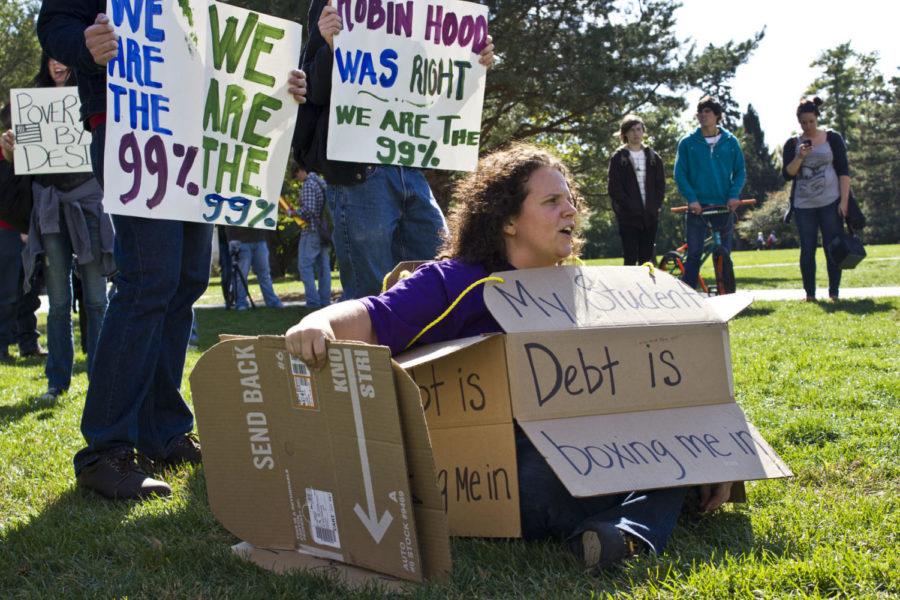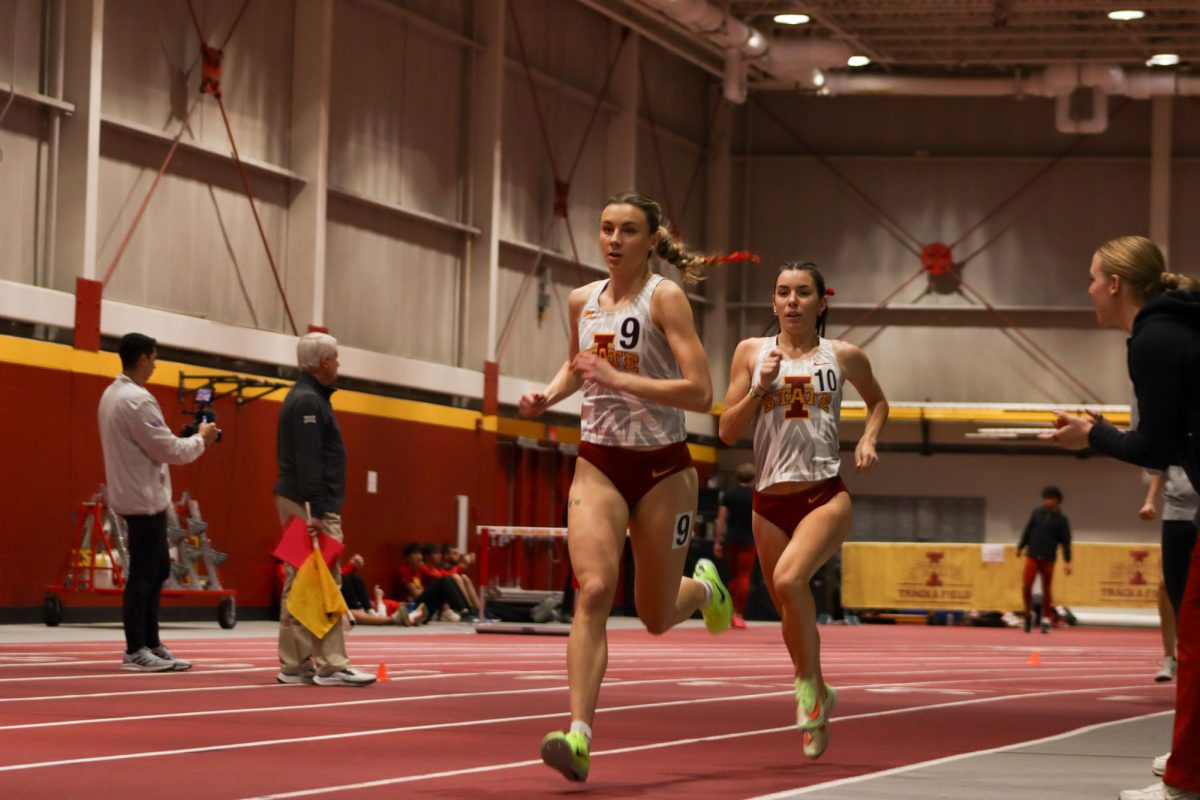Iowa State #Occupied as protesters take to campus
Photo: Kait McKinney/Iowa State
Kathleen Gillon sits in front of Parks Library to protest her concerns. Gillon is working on her third dress but still paying off her first degree she earned 10 years ago. Gillon was pleased to see the number of students, faculty and staff supporting the Occupy ISU initiative.
October 13, 2011
On Thursday afternoon, amid the chimes of the Campanile’s noon bell song, another tune radiated through the air, only this was not a happy one. This sound of anger and frustration was that of the crowd that had gathered next to the Campanile on Central Campus to join in solidarity with the Occupy Wall Street movement that has been sweeping the nation in the past few weeks.
More than 100 people attended the event and vented their frustration about corporate greed and a feeling of disenfranchisement from the political process.
What started as a small group of people camped out in Lower Manhattan’s Zuccotti Park protesting the financial centers has, in a matter of weeks, turned into a nationwide protest movement of ordinary people, young, old, white, black, poor, working and others who feel like this is their last resort to have their voices heard by uncompromising politicians.
A common point made by the protesters is “We are the 99 percent,” in reference to the fact that while the majority of Americans are suffering from the current economic climate, the tiny wealthy elite have actually done quite well. Many feel this imbalance of wealth and political power between the rich and their working and a middle class counterpart is destroying every sense of what it used to mean to be American. This is why the Occupy protests have resonated so well with so many Americans who are fed up with being ignored. And now the movement has reached Iowa State.
“I have been inspired with the Occupy Wall Street movement and I thought I would show my support,” said attendee Nathan Van Velson, graduate student in mechanical engineering. “This is my first time protesting and I hope to continue to participate and make my voice heard.”
Van Velson, along with the majority of the other attendees, was particularly frustrated with the Citizens United v. FEC Supreme Court case ruling that allowed private corporations to donate unlimited amounts of money to independent political broadcasts during election season. This ruling has outraged many across the country who see it as just another step in money dominating the political process and the grievances of ordinary Americans being marginalized in favor of corporate interests.
“I hope this movement develops into something big,” Van Velson said. “Politicians need to represent the people, not corporations … I don’t have the money but I still have a voice and a vote.”
As the hour-long protest went on, the crowd became increasingly more enthusiastic as, one by one, protesters went to the center and yelled why they were attending the protest. Because no one had a microphone, the entire crowd acted as each person’s microphone by repeating their words as they said them. This practice of listening and repeating speakers’ words has become a common practice among Occupy protests and has been a sign of unity among the attendees.
“We are here for the working man, the working people and the students,” yelled one attendee during the protest. Later on, another protester came forward and said, “The balance of power in this country is entirely in favor of the corporations!” to which the crowd enthusiastically cheered.
Another interesting point about the Occupy protest Thursday was the incredible diversity of people who showed up to the event. One would expect that protest like this on college campus would solely bring in college students, but the reality was that a large number of the people there were anything but college students; they were business professionals, working class families, professors and a smattering of others — all of whom had similar frustrations and wanted to be heard.
“I’m here because of the inequality,” said attendee Sharon Guber. “While the 99 percent of us are out there trying to make it, the 1 percent is hoarding all of the money.”
Guber, like many others there, had only recently heard about the Occupy movement and could not wait to get out and join them. According to the organizers, time was of the essence and this time was too important to waste.
“We need to get money out of politics,” Guber said. “And there are so many other things that need to be addressed too … but we have the vote and we are very resourceful.”
By 1 p.m., the protesters had left the area and business was back to normal on campus, but not before Twitter and Facebook lit up the Internet with updates of the protest and local news outlets had picked up the story. There has yet to be word on when another protest at Iowa State is to take place.







